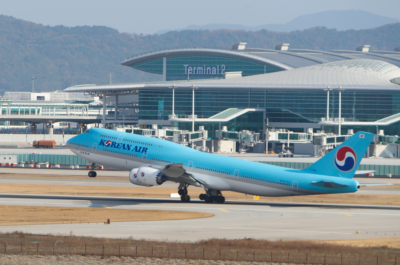Abacus releases further analysis of China’s deregulation in air transport. The Chinese travel market is expected to double between 2009 and 2013, when it will exceed US$105 billion[, and the online travel market will more than quadruple over the same period, to exceed $15 billion.
SINGAPORE – 800 million new air travellers are expected to be flying from 2009 to 2014, with at least a quarter coming from China. During this same period, airline passenger revenues are expected to double, reaching US$53 billion. As of November 2012, there are 120 registered commercial airlines (97 international carriers) in China, carrying more than 270 million passengers on domestic flights and greater than 21 million on international flights. Growth is prevalent everywhere in the fastest growing GDP market globally, with double-digit booking growth in all travel platforms for airlines, including travel agencies, direct, online travel agencies (OTAs) and online shopping malls.
With so much growth, it is not surprising that travel players such as foreign airlines would want a piece of this massive pie. However, it has not been an easy path. The government continues to play a large role in the travel industry, as evidenced by its greater than 80 per cent stake in local airlines. In addition, the primary computerised reservation system in China, TravelSky, is a state-controlled enterprise with a near monopoly on sale of any information technology solutions to the air travel industry in the market.
We are left with then a large growing travel market in China that is highly regulated and guarded by the local government. This is very understandable considering the consistency in distribution costs that state-owned players gain to benefit from. They may be concerned with keeping distribution costs at a minimum with the entry of foreign carriers into China.
Since October 1, a change in the Civil Aviation Administration of China (CAAC) Computerised Reservation System (CRS) has provided a new opportunity for foreign airlines to leverage distribution partners such as Abacus to enable access to their fares and content across a wider network of travel agents. This bold move sees CAAC taking the initiative in liberalising a highly monopolistic travel industry to allow for new market competition which could potentially bring lower costs, improved quality and ultimately, greater progress to the industry.
Ticketing via foreign GDSs is now a possibility for international carriers for ‘international routes which consists of domestic and foreign routes of China, but does not include international tickets of domestic routes that have no cod-share with a Chinese national carrier’ or ‘an approved international ticket which has a code-share with either a Chinese national carrier or foreign carrier’. However, the entire process is not an easy one – applications and approvals are subject to CAAC review which can be time-consuming. From airlines issuing tickets through a foreign GDS to a Chinese agency booking flights via a foreign GDS require approval. In addition, Billing and Settlement Plan (BSP) ticketing are still not open to foreign GDSs, meaning that settlement must be completed through a separate process.
The question then is, what benefit is there for any foreign airline to work with a GDS other than TravelSky? To start, the number of passengers on foreign airlines is growing and non-Chinese airlines account for more than half of the Chinese international flight market. The total number of international bookings by foreign carriers for the China market is estimated to be 16 million this year, a small fraction of the total China booking volume, but this number is expected to grow by at least 10-20 per cent in the next few years.
A distribution partner like Abacus can also provide additional benefits to airlines that may not be achieved currently otherwise. Better accuracy and full content of an international GDS may benefit airlines through a boost in sales. In addition, the technology solutions and infrastructure that the international GDS has already in place both in China and the region offers greater streamlining, support and efficiency in integrating both content and process flows in systems and platforms airlines are already familiar with and utilising today.
Abacus in particular works with airlines continuously throughout Asia Pacific to help maximise revenue, effectively manage yield, increase productivity and manage cost, and this is no different in China. Airlines can utilise the Abacus platform freely to upload net fares with the guarantee of full access to these net fares through the travel agencies and look to minimise airline debit memos (ADMs) through automated processes.
This initial regulation change in China may pave the way for greater steps in the future – it is not a step to be ignored and all travel stakeholder including airlines need to be prepared. Airlines look to benefit the greatest from this CAAC regulation mostly by having a choice in the matter – now they can have options in deciding on the right distribution partner that best suits their need which in turn will help to boost the service level in the airline space. Some simple factors airlines should look for in choosing the right foreign distribution partner in maximising the potential in China:
- Airlines should look at a GDS’ experience, presence and expertise in the China and Greater China markets
- Airlines should seek innovative solutions and services from the GDS
- PSS hosting should be a priority
- Understanding of Asian markets and in particular, the needs of the China travel market and traveller
- Future innovation and focus in mobile, online, ancillary by the GDS
- Productivity solutions by the GDS to maximise efficiency and profitability
- Relationships and partnerships already existing in China by the GDS
Rules change because regulators trail the dynamics of a constantly evolving travel market. One can choose to be proactive or reactive to these changes, but one thing is certain – being armed with the proper tools and a sense of readiness will give an airline the edge in supporting current and future moves by CAAC. Greater change can then potentially lead to airlines extracting greater reward.
Luc Citrinot a French national is a freelance journalist and consultant in tourism and air transport with over 20 years experience. Based in Paris and Bangkok, he works for various travel and air transport trade publications in Europe and Asia.






















































